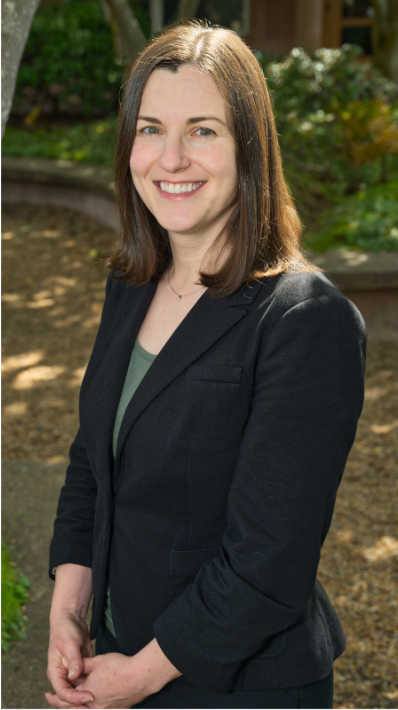
A passionate advocate for OT

Tracy Mroz’s first career was as a strategy consultant. While the work was interesting, she felt something was missing. Mroz had always been a dedicated volunteer, particularly enjoying her time working with people with disabilities. However, as her business career grew, she found less time for volunteering. When the dot-com bust impacted her company, she took it as a sign to pursue a different path.
Approaching her career change like the strategist she was, Mroz did extensive research. She ultimately chose occupational therapy (OT) because it offered a balance of creativity and science, along with diverse opportunities. The variety within OT, combined with the chance to make a meaningful difference in people’s lives, was the perfect fit for her.
Once she began practicing, Mroz worked in various environments, including acute care, post-acute care, and home- and community-based care. It wasn’t long before she noticed how much of her work was driven by health policies rather than patient needs. Her analytical mind began to raise questions: “Why can’t I get this piece of adaptive equipment for a client who really needs it? [An insurance company] would rather have someone fall, break a hip, and incur more costs than pay for a tub bench that would prevent the fall.”
"Home health plays a critical role in helping people remain in their communities.”
Seeing how much policy influences care pushed Mroz to pursue a PhD in health services research and policy. As she studied in a school of public health, she often had to explain the clinical benefits of rehabilitation to her mentors, faculty, and fellow PhD students. Later, when she joined the University of Washington’s Department of Rehabilitation Medicine, the roles reversed—she found herself explaining health services and policy research to rehabilitation experts.
Today, Mroz’s research focuses on the impact of policies and healthcare delivery system factors on access to and quality of post-acute care, particularly rehabilitation services. She is especially drawn to research in home health, explaining: “It’s the only setting where you’re truly in the patient’s home, understanding the way they live and interact with their environment. For me, it’s an ideal environment for health services research on rehabilitation, especially for older adults who want to age in place. Home health plays a critical role in helping people remain in their communities.”
One of Mroz’s current projects, funded by the National Institute on Aging, explores how recent policy changes for Medicare reimbursement to home health agencies and skilled nursing facilities have affected access to rehabilitation services and patient outcomes. As an investigator with the WWAMI Rural Health Research Center, she is also leading a series of studies on home health for Medicare beneficiaries living in rural communities funded by the Federal Office of Rural Health Policy of the Health Resources and Services Administration.
Her research and clinical experience as an occupational therapist has garnered attention from policymakers at the federal level. This has led to multiple opportunities to advocate for OT. Mroz serves on the technical expert panel for the Centers for Medicare & Medicaid about the expansion of the Home Health Value-Based Purchasing model. She has also advised on functional assessment items used across different post-acute care settings as part of the Improving Post-Acute Care Transformation Act. In September 2023, she testified before the United States Senate Finance Subcommittee on Health Care about the role of home health in supporting aging in place.
Her focus on policy research also carries into her teaching. By their second year, Master of Occupational Therapy students have learned many ways to work with clients. But Mroz explains that, while they might know interventions that could greatly benefit clients, policies often limit who can access OT services and what occupational therapists can do. Mroz jokingly refers to this class as “the bummer class”. However, while she does let students know about some of the limitations they might face in practice, she also teaches them how to navigate these systems and advocate for their clients.
As the UW Division of Occupational Therapy celebrates 65 years, Mroz looks toward the future, envisioning ways the profession can expand and evolve. True to her roots as a strategy consultant, she sees many opportunities for those trained with an OT mindset. Whether it’s consulting on accessibility in software, helping companies meet their obligations under the Americans with Disabilities Act, or ensuring design teams create truly universal solutions, Mroz believes occupational therapy professionals are well-positioned to make an impact, now and for decades to come.
